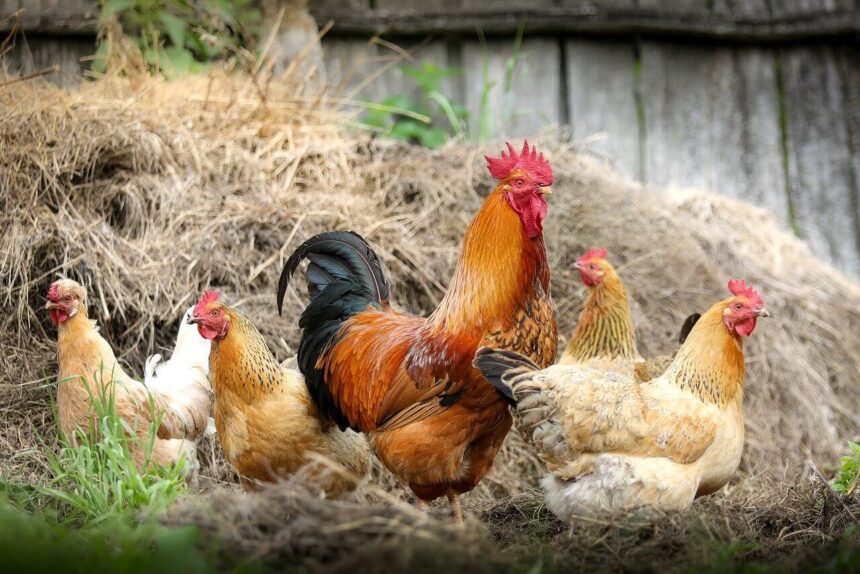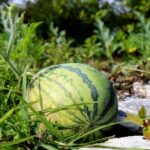The best way to protect your flock against infectious poultry diseases is to keep them healthy and well-nourished. A robust immune system will help your birds fight off any infection. Here are some tips on how to keep your flock healthy and disease-free:
Infectious poultry disease outbreaks are among the major causes of significant losses due to the simultaneous deaths of poultry farmers.
When a farmer experiences poultry fatalities before the production cycle, he should not expect to make a good profit after the sale.
Death-related losses can be avoided, minimized, or made to occur on a small scale. This is possible; the following is how to achieve it.
Ways of Preventing Infectious Poultry Diseases.
1. Always wash drinking utensils and pour out the remaining water
Ensure you pour away the remaining water in drinking utensils and wash the silverware with soap and water daily.
Next, use clean water without medicine, and do not use warm/hot water or any other water you are not sure of its source.
If you wish to use treated water, use water treated with Vitalyte, an effective and water-soluble feed supplement necessary to maintain poultry livestock’s growth, development, and health status.
2. Give them water before meals
Birds are different from humans or any other animals. Ensure you give them water before the meal, primarily if you use feeding trays made of wood. This ensures they do not cause a stampede when trying to provide in one place.
3. Do not give them stench/smelly food
It is hazardous to give your birds/poultry smelly food. It is like feeding them poison. Stench or bad odors make the chicken susceptible to diseases or cause other health problems.
4. Adhere strictly to vaccination schedules and treatments
Finding the proper treatment and vaccines for the birds you breed would be best. Vaccinations will significantly strengthen their immunity against dangerous diseases such as Newcastle disease, fowlpox, infectious bursal disease (IBD), and Marek’s disease.
Drugs used in deworming and other antibiotics are essential for the health of chickens and other birds.
5. Buy and breed healthy chicks
Most poultry health problems result from poor early survival of the chickens or are genetically inherited.
You should know that some birds inherit poor health from their parents. However, some farmers also breed chickens in poor health and thus sell weak chicks or eggs to the victims, and therefore the buyer finds himself buying problems.
6. Restrict the concentration of ammonia air
The longer the smell of bird droppings mixed in sawdust remains, the more the air concentration increases. This, in turn, causes the birds to be choked to death.
Remove natural or corrugated nesting and replace them immediately to avoid deaths from infections or airborne diseases.
7. Avoid rats and other small animals
The poultry yard should not allow rodents or small mammals to enter. It should not also allow wild birds. You can prevent this by setting up nets or spraying.
If these animals get hungry, they might kill and eat your chickens or even prevent them from eating food or drinking water.
8. Focus on cleanliness and safety
The aspect of hygiene and safety is broad, but all you have to do is focus on sanitation outside and inside the birds’ houses.
You always need to maintain your poultry’s health, not only when they are affected by an outbreak.
9. Give them enough food but don’t overfeed
Like other mammals, birds cannot grow and reproduce effectively without nutrition.
Good nutrition is a solid and protective foundation, as poor food leads to weight loss and weak immunity.
This, in turn, will cause the birds to die early. Ensure that you give your chickens enough food but don’t overfeed them.
10. Protect them against cold
Cold weather is an enemy to the health of humans, animals, and birds. You must try your best to protect your birds from the cold as it kills them quickly like poison.
You can either make a source of heat for the birds during cold seasons or build a house that does not allow cold. As a farmer, these are the most fundamental ways to prevent infectious poultry diseases.
Conclusion
Preventing infectious poultry diseases is critical to the success of any poultry operation. Implementing biosecurity protocols and using vaccines are two essential ways to prevent these diseases.
Other measures can be taken to help protect your flock. In this article, we’ve outlined ten different ways that you can help keep your birds healthy and free from disease. We hope you find these tips helpful and will implement them in your operation.







